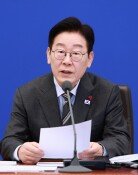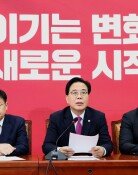Seoul must not be sidelined in U.S.-N.K. peace talks
Seoul must not be sidelined in U.S.-N.K. peace talks
Posted February. 23, 2016 07:15,
Updated February. 23, 2016 07:21
It has been reported there was an exchange of opinions late last year on the peace talks between the U.S. and North Korea only several days before the North conducted its fourth nuclear test. “The Obama administration dropped Pyongyang’s denuclearization as a precondition for talks over a peace treaty to officially end the Korean War and proposed to discuss denuclearization, but the North rejected it,” the Wall Street Journal reported on Sunday (local time). In response, U.S. State Department Spokesperson John Kirby said, "To be clear, it was the North Koreans who proposed discussing a peace treaty,” practically admitting to the WSJ’s report.
The U.S. explained that its decision to review peace talks is in line with its existing policy towards North Korea’s denuclearization. The Ministry of Foreign Affairs also announced that the U.S. and South Korea are adhering to a consistence stance that denuclearization comes first in any dialogue with the North. However, the fact that the U.S. made such a proposal as early as late last year points to a considerable change of stance.
It was the so-called left-wings in China and South Korea who supported the idea of concluding a peace treaty. Dismantling the armistice system that is the outgrowth of the Korean War will mean dissolution of the United Nations Command, which in turn will eliminate the grounds for the presence of the U.S forces in Korea. In fact, the North adamantly demanded that a peace treaty must be signed right before the U.S.-Korea summit meeting in October last year as well as in January in the wake of its fourth nuclear test. If the peace treaty is signed either first or simultaneously, it could actually lead to the worst case scenario where the U.S. forces in Korea are pulled out of the country while the North’s status as a nuclear power is recognized.
The Ministry of Foreign Affairs did not reveal whether it knew about the discussion between the U.S. and North Korea. If the North’s policy actually worked to only engage the U.S. while excluding South Korea, and if South Korea did not have any clue about the U.S.’s change of tack, it spells serious trouble. Some argue that it was a consequence to President Park Geun-hye’s visit to China last year for the anti-war victory military parade. What is more the discussion between the U.S. and the North came less than one month after North Korea Kim Jong Un openly declared the success of hydrogen bomb. Indeed, the blame is due that the South Korean administration lost the chance to warn against the fourth nuclear test in early January and the launch of long-range missiles that followed.
The U.S. and South Korea are pressing North Korea by using strong sanctions, such as the suspension of the inter-Korean industrial complex in Kaesong and the implementation of secondary boycott against the North. The two countries need to work together more closely than ever to make the North give up on its nuclear ambition. No matter how trivial it may be, South Korea must share all intelligence concerning the North’s nuclear program with the U.S. and remain vigilant against the moves on the part of North Korea. There is an on-going discussion about the deployment of THAAD system on the Korean Peninsula in the face of China’s opposition; it is quite natural to demand close cooperation from the U.S. against North Korea.







